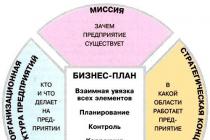Remote workers are persons who have concluded an employment contract for remote work.
Remote workers are subject to labor legislation and other acts containing labor law norms, taking into account the specifics established by this chapter.
In the event that this chapter provides for the interaction of a remote worker or a person entering a remote work and the employer through the exchange of electronic documents, enhanced qualified electronic signatures a remote worker or a person applying for remote work, and an employer in the manner prescribed by federal laws and other regulatory legal acts Russian Federation. Each of the parties to the specified exchange is obliged to send in the form electronic document confirmation of receipt of an electronic document from the other party within the period specified in the employment contract for remote work.
In cases where, in accordance with this Code, an employee must be familiarized with writing, including against signature, with accepted local regulations directly related to his work activity, orders (instructions) of the employer, notifications, requirements and other documents, the remote worker can be familiarized with them by exchanging electronic documents between the employer and the remote worker.
In cases where, in accordance with this Code, an employee has the right or obligation to apply to the employer with a statement, provide the employer with explanations or other information, the remote worker may do this in the form of an electronic document.
To provide compulsory insurance coverage for compulsory social insurance in case of temporary disability and in connection with motherhood, the remote worker sends the employer the original documents provided for by federal laws and other regulatory legal acts of the Russian Federation, by mail by registered mail with notice.
When a remote worker submits an application for the issuance of duly certified copies of documents related to work (of this Code), the employer, no later than three working days from the date of submission of the said application, must send these copies to the remote worker by registered mail with notification or, if it is indicated in application in the form of an electronic document.
Article 312.2 of the Labor Code of the Russian Federation. Features of concluding and changing the terms of an employment contract on remote work
Employment contract on remote work and agreements on changing the conditions determined by the parties employment contract remote work can be concluded by exchanging electronic documents. At the same time, the location of the employer is indicated as the place of conclusion of an employment contract on remote work, agreements on changing the terms of the employment contract on remote work determined by the parties.In the event that an employment contract for remote work is concluded by exchanging electronic documents, the employer, no later than three calendar days from the date of conclusion of this employment contract, he is obliged to send to the remote worker by registered mail with notification a duly executed copy of this employment contract on paper.
When concluding an employment contract on remote work by exchanging electronic documents, the documents provided for by this Code may be presented to the employer by a person applying for remote work in the form of an electronic document. At the request of the employer this person is obliged to send him by registered mail with notification notarized copies of these documents on paper.
If an employment contract for remote work is concluded by exchanging electronic documents by a person who enters into an employment contract for the first time, this person receives a state pension insurance certificate independently.
Familiarization of a person concluding an employment contract on remote work with the documents provided for by this Code may be carried out by exchanging electronic documents.
By agreement of the parties to the employment contract on remote work, information about remote work may not be entered in work book remote worker, and when concluding an employment contract for the first time, a work book for a remote worker may not be issued. In these cases, the main document on labor activity and the length of service of the remote worker is a copy of the employment contract for remote work specified in this article.
In the absence of the agreement specified in this article, the remote worker provides the employer with a work book in person or sends it by registered mail with notification.
In an employment contract on remote work, in addition to additional conditions that do not worsen the position of the employee compared to the established labor law and other regulatory legal acts containing labor law norms, a collective agreement, agreements, local regulations (of this Code), an additional condition may be provided for the obligation of a remote worker to use equipment, software and hardware in the performance of his duties under an employment contract on remote work , information security and other means provided or recommended by the employer.
Article 312.3 of the Labor Code of the Russian Federation. Features of the organization and labor protection of remote workers
The procedure and terms for providing remote workers with the equipment, software and hardware, information security tools and other means necessary for the performance of their duties under an employment contract on remote work, the procedure and terms for submitting reports on the work performed by remote workers, the amount, procedure and terms for paying compensation for the use by remote workers of equipment belonging to them or rented by them, software and hardware, means of protecting information and other means, the procedure for reimbursement of other expenses related to the performance of remote work is determined by the employment contract on remote work.In order to ensure safe conditions and labor protection for remote workers, the employer fulfills the obligations stipulated by this Code, and also familiarizes remote workers with labor protection requirements when working with equipment and means recommended or provided by the employer. Other obligations of the employer to ensure safe conditions and labor protection, established by this Code, other federal laws and other regulatory legal acts of the Russian Federation, laws and other regulatory legal acts of the constituent entities of the Russian Federation, do not apply to remote workers, unless otherwise provided by an employment contract on remote work.
Article 312.4 of the Labor Code of the Russian Federation. Features of the working hours and rest time of a remote worker
Unless otherwise provided by the employment contract on remote work, the mode of working time and rest time of the remote worker is established by him at his own discretion.The procedure for granting annual paid leave and other types of leave to a remote worker is determined by an employment contract for remote work in accordance with this Code and other acts containing labor law norms.
Article 312.5 of the Labor Code of the Russian Federation. Peculiarities of termination of an employment contract on remote work
Termination of the employment contract on remote work at the initiative of the employer is carried out on the grounds provided for by the employment contract.If familiarization of the remote worker with the order (instruction) of the employer to terminate the employment contract on remote work is carried out in the form of an electronic document, the employer on the day of termination of this employment contract is obliged to send to the remote worker by registered mail with notification a duly executed copy of the specified order ( orders) on paper. The best
" № 5/2013
On April 19, 2013, a new chapter 49.1 of the Labor Code of the Russian Federation came into force, which defines the features of regulating the work of remote workers. Let's consider them.
Definition of remote work
Chapter 49.1 "Peculiarities of labor regulation of remote workers" was introduced in Labor Code RF Federal Law of April 5, 2013 No. 60-FZ. For the first time, she introduced the concepts of “remote work” and “remote worker” into labor legislation. Their definitions are given in article 312.1 of the Labor Code of the Russian Federation.
Remote workers are persons who have entered into remote work.
Remote work is the performance of duties specified by the employment contract outside the location of the employer, its branch, representative office, other separate structural unit (including those located in another locality), outside the stationary workplace, territory or facility, directly or indirectly under the control of the employer. But only on condition that public information and telecommunication networks, including the Internet, are used to perform this labor function and for interaction between the employer and the employee on issues related to its implementation.
Note that the new chapter 49.1 of the Labor Code of the Russian Federation indicates the need to apply the norms of labor legislation to remote work, taking into account the features specified in this chapter, which we will consider further.
Features of the work of remote workers
Article 312.1 of the Labor Code of the Russian Federation defines the conditions for such a method of communication between an employee and an employer as the exchange of electronic documents. Wherein prerequisite such an exchange is the use of enhanced qualified electronic signatures of the employee (applicant) and the employer.
In the form of electronic document exchange, the following can be carried out:
– conclusion of an employment contract;
– familiarization with local regulations, orders, notices and requirements of the employer;
- the employee's application with a statement, providing the employer with the necessary explanations;
- requesting and issuing documents related to work.
True, the condition for the use of this method of interaction between the employee and the employer is the need to duplicate, in established cases, electronic documents with paper copies that are sent to the remote worker or from the employee to the employer by mail.
It is important to remember that in any case, labor relations remain with the employee and this imposes rights and obligations on the parties.
In order to distant work remained effective, the parties should describe in much more detail than with other employees essential conditions, including working time control methods, quality checks, ensuring necessary resources and responsibility for labor safety.
So, according to Article 312.3 of the Labor Code of the Russian Federation, an employment contract on remote work additionally stipulates:
- the procedure and terms for providing employees with the necessary for the performance of their job duties equipment, software and hardware, information security tools and other means;
- the procedure and deadlines for the submission of reports on the work performed by remote workers;
- the amount, procedure and terms of payment of compensation for the use by remote workers of equipment belonging to them or rented by them, software and hardware, information security tools and other means;
– the procedure for reimbursement of other expenses related to the performance of remote work.
The employment contract for remote work must specify the grounds for its termination at the initiative of the employer. This is established by article 312.5 of the Labor Code of the Russian Federation.
Preparation of individual documents
Chapter 49.1 of the Labor Code of the Russian Federation also regulates the execution of various documents related to the conclusion of an agreement on remote work.
Documents for employment. In the general case, when concluding an employment contract, the future employee presents the employer with a passport, work book, insurance certificate of state pension insurance, and a document on education. This is enshrined in Article 65 of the Labor Code of the Russian Federation. A potential remote worker may submit the documents provided for in this article in the form of an electronic document. At the same time, at the request of the employer, he is obliged to send him by registered mail with notification notarized copies of these documents on paper (Article 312.2 of the Labor Code of the Russian Federation).
When hiring (before signing an employment contract), the employer is obliged to familiarize the employee against signature with the internal labor regulations, other local regulations directly related to the employee's labor activity, the collective agreement. In addition, the order (instruction) of the employer on employment is announced to the employee against signature within three days from the date of the actual start of work. This is enshrined in Article 68 of the Labor Code of the Russian Federation. A remote worker can get acquainted with them by exchanging electronic documents (Article 312.2 of the Labor Code of the Russian Federation).
Insurance pension certificate. It is possible that for a person concluding an employment contract on remote work by exchanging electronic documents, this is the first place of work. Such a remote worker receives an insurance certificate of state pension insurance independently (Article 312.2 of the Labor Code of the Russian Federation).
Employment history. By agreement of the parties to the employment contract on remote work, information about remote work may not be entered in the work book of the employee. And when concluding an employment contract for the first time, a remote worker may not be issued. In these cases, the main document on the labor activity and length of service of the remote worker is a copy of the employment contract on remote work on paper (Article 312.2 of the Labor Code of the Russian Federation).
In the absence of this agreement, the remote worker provides the employer with a work book in person or sends it by registered mail with notification.
Documents required for the assignment of benefits. As for sick leave certificates and other originals that are necessary for the assignment of benefits, the employee must send them by registered mail with notification. This is stated in article 312.1 of the Labor Code of the Russian Federation.
Documents provided at the request of the employee. The employee has the right to request from the employer copies of documents related to work. For example, copies of an employment order, orders for transfers to another job, an order for dismissal from work, an extract from a work book, a salary certificate, etc. For this, he must write an application. In turn, the employer is obliged, no later than three working days from the date of filing such an application, to issue copies of documents to the employee (Article 62 of the Labor Code of the Russian Federation). If such documents were requested by a remote worker, the employer, no later than three working days from the date the employee submitted the application, is obliged to send him these copies by registered mail with notification. Documents can be sent in the form of an electronic document if it is indicated in the application (Article 312.1 of the Labor Code of the Russian Federation).
Important to remember
If the contract on remote work does not provide for the work and rest schedule of the employee, he establishes it at his own discretion. The employment contract, in particular, stipulates the procedure and terms for the submission of reports on the work performed by remote workers. By agreement of the parties to the contract on remote work, an entry in the work book of the employee may not be made.
Development information systems and the emergence of new technologies that allow working outside the location of the employer, has led to the need to amend the labor legislation.
Federal Law No. 60-FZ of April 5, 2013 “On Amendments to Certain Legislative Acts of the Russian Federation” included a new chapter in the Labor Code of the Russian Federation that regulates the work of remote workers.
This chapter includes five articles that are devoted to the features of the conclusion, amendment and termination of an employment contract, the features of the organization and labor protection, the features of the working hours and rest time of remote workers.
According to Art. 312.1 of the Labor Code of the Russian Federation “remote work is the performance of a labor function defined by an employment contract outside the location of the employer, its branch, representative office, other separate structural unit (including those located in another area), outside a stationary workplace, territory or facility, directly or indirectly under control employer, provided that for the performance of this labor function and for the interaction between the employer and the employee on issues related to its implementation, public information and telecommunication networks, including the Internet.
In other words, remote work is characterized by two features:
a. performance of work outside the location of the employer;
b. use of public information and telecommunication networks, including the Internet, to perform a labor function and to interact between the employer and the employee on issues related to its implementation.
The appearance of Chapter 49.1 of the Labor Code of the Russian Federation, of course, should be considered a positive development in labor law. However, the application of this chapter is associated with certain difficulties.
First of all, this is due to the fact that the legislator minimally regulates issues related to the work of remote workers.
In practice, when applying Chapter 49.1 of the Labor Code of the Russian Federation, employers have many questions regarding the regulation of the work of remote workers, for example, regarding the mode of operation, determining the place of work, document management, electronic digital signature, insurance premiums.
However, there are no direct answers to these questions in the Labor Code of the Russian Federation. In this connection, enterprises are forced to apply to the relevant government bodies for clarification of the provisions of the chapter on remote work. These bodies are the Ministry of Labor and social protection RF (hereinafter referred to as the Ministry of Labor), federal Service on labor and employment (hereinafter - Rostrud).
First of all, when applying Chapter 49.1 of the Labor Code of the Russian Federation, employers have a question about the procedure for concluding an employment contract.
The scientist L. S. Tal wrote in his works: “Any contract in which the promise of labor is fixed as the basis of the contract is an employment contract, and the subject of the contract can be considered legally relevant activity in someone else’s interest, sent by the person who promised it personally or organized by him.”
The scientist S. Kh. Dzhioev in his works pointed out that the risks in registering remote employment are borne not only by the employer, but also by the employee. He notes that “for an employee, the risks of remote employment are mainly reduced to ensuring guarantees for the observance of his labor rights. The employee must be sure that in the process of remote work his rights will be respected, the same as the rights of an ordinary employee who works for hire on the territory of the employer, namely the right to guaranteed rest, the established schedule and working hours, labor protection, etc. etc." .
However, according to Art. 61 of the Labor Code of the Russian Federation, an employment contract enters into force either from the moment the employment contract is signed by the employee and the employer, or from the day the employee is actually admitted to work with the knowledge or on behalf of the employer or his authorized representative.
Due to the fact that the remote worker is located far from the employer, the most important issue, we believe, is the question of the moment of concluding an employment contract.
At actual admission remote worker to work with the knowledge or on behalf of the employer or his authorized representative, it is not difficult to determine the moment of concluding an employment contract. However, in the case of signing an employment contract by the parties, difficulties arise in determining the moment of concluding an employment contract.
According to Art. 312.2 of the Labor Code of the Russian Federation, the legislator grants the parties to the employment contract the right to choose the method of signing the employment contract, including the employment contract can be signed by electronic document management.
Thus, an employment contract between an employer and a remote worker can be signed by exchanging documents by postal items. In this case, the employment contract is signed in stages:
In case of signing the employment contract by the employee first:
- sending an employment contract signed by the employee by mail to the employer;
- obtaining an employment contract by the employer;
- sending an employment contract signed by the parties to the employee;
- receipt of an employment contract signed by the parties by the employee.
In case of signing the employment contract by the employer first:
- signing an employment contract by the employer;
- sending an employment contract signed by the employer to the employee;
- receipt of an employment contract signed by the employer by the employee;
- signing an employment contract by an employee;
- direction of the employment contract signed by the parties by the employer;
- receipt of an employment contract signed by the parties by the employer.
Taking into account the time of the postal run, the signing of an employment contract by the parties can take a considerable time, and therefore, the issue of the moment of concluding an employment contract becomes acute.
However, neither the legislator nor the state authorities give an unequivocal answer to this question.
At the same time, we believe that the moment of concluding an employment contract should be considered the moment the employer receives the signed contract. This provision is explained by the fact that until the employer becomes aware of the signing of the employment contract by the employee, he cannot allow the employee to work, which means that labor relations do not arise.
In accordance with Art. 312.2 of the Labor Code of the Russian Federation, the parties can sign an employment contract, including through electronic document management.
Thus, the legislator grants the parties the right to conclude an employment contract also by exchanging electronic documents. In this case, the employment contract is signed in stages, as in the case of the exchange of documents through the postal service, but the signing time is significantly reduced.
However, according to Art. 312.2 of the Labor Code of the Russian Federation, in the event of signing an employment contract through electronic document management, the employer is obliged to send the original of the employment contract to the employee.
Furthermore, in accordance with Art. 68 of the Labor Code of the Russian Federation, in connection with the conclusion of an employment contract, the employer has an obligation to familiarize the employee against signature with internal documents of organizations. In accordance with Art. 312.1 of the Labor Code of the Russian Federation, the employee can become familiar with them, including by exchanging electronic documents between the employer and the remote worker.
In this connection, employers immediately have the question of what constitutes an electronic document.
Often, employers turn to government agencies for clarification whether scanned documents (in particular, local regulations) belong to the concept of an electronic document. To which the Ministry of Labor of Russia, in its explanation of the organization's appeal, indicated that scanned documents are not included in the concept of an electronic document. According to the Federal Law of April 6, 2011 N 63-FZ "On Electronic Signature", an electronic document is information in electronic form signed by a qualified electronic signature, and in order to apply the Labor Code of the Russian Federation, it is necessary to sign with an enhanced qualified electronic signature.
Among other things, the question arises which documents the legislator gives preference to.
Authors such as V.A. Konyavsky and V.A. Gadasin in their works note that the fundamental difference between electronic documents and analog documents is their purpose for functioning in completely different environments: an analog document functions in an environment of thinking subjects - people, an electronic one - in an environment of software and hardware computer science. That is, in fact, the two types of document are equal, but suitable for use for different purposes.
According to the clarifications of Rostrud, the provision of par. 4 tbsp. 312.1 of the Labor Code of the Russian Federation on the exchange of electronic documents is dispositive and provides the parties with a choice. Accordingly, Chapter 49.1 of the Labor Code of the Russian Federation "does not oblige the parties to the remote work agreement to interact exclusively in the form of electronic documents".
Thus, the parties to the employment contract can interact themselves determine the ways of exchanging documents, including by combining these methods.
However, in accordance with par. 3 art. 312.2 of the Labor Code of the Russian Federation provides that “in the event that an employment contract for remote work is concluded by exchanging electronic documents, the employer, no later than three calendar days from the date of conclusion of this employment contract, is obliged to send to the remote worker by registered mail with notification a duly executed copy of this labor contracts on paper. Furthermore, in accordance with Art. 312.2 of the Labor Code of the Russian Federation, if a work book is not issued to a remote worker, then the main document on labor activity and work experience of a remote worker is the above copy of the employment contract on remote work.
It should also be noted that, according to the explanation of the Ministry of Labor of Russia, “in order to provide compulsory insurance coverage for compulsory social insurance in case of temporary disability and in connection with motherhood, a remote worker sends the employer the original documents provided for by federal laws and other regulatory legal acts of the Russian Federation, by registered mail with notice."
Thus, it can be concluded that, despite the fact that the legislator gives the parties to the employment contract the freedom to choose the method of exchanging documents, nevertheless, priority is given to paper documents.
Summing up all of the above, we can conclude that the regulation of the work of remote workers is carried out not only by the Labor Code of the Russian Federation, but also on the basis of clarifications from the state bodies of the Russian Federation.
Due to the fact that the application of the provisions of Chapter 49.1 of the Labor Code of the Russian Federation raises numerous questions from enterprises, they are forced to address questions to which state bodies provide answers by interpreting the provisions of the Labor Code of the Russian Federation. At the same time, in most cases, the explanations are of a formal nature, but there are very detailed, specific answers to the questions asked. Considering that the number of enterprises using remote work is increasing every day, and the fact that the questions are mostly repeated, we consider it appropriate to issue a by-law on remote work, which is in the public domain.
introduced by the Federal Law of 05.04.2013 N 60-FZ
Article 312.1. General provisions
Remote work is the performance of a labor function defined by an employment contract outside the location of the employer, its branch, representative office, other separate structural unit (including those located in another locality), outside a stationary workplace, territory or facility, directly or indirectly under the control of the employer, provided use for the performance of this labor function and for the interaction between the employer and the employee on issues related to its implementation, public information and telecommunication networks, including the Internet.
Remote workers are persons who have concluded an employment contract for remote work.
Remote workers are subject to labor legislation and other acts containing labor law norms, taking into account the specifics established by this chapter.
If this chapter provides for the interaction of a remote worker or a person entering a remote work and an employer by exchanging electronic documents, enhanced qualified electronic signatures of a remote worker or a person entering a remote work and the employer are used in the manner prescribed by federal laws and other normative legal acts of the Russian Federation. Each of the parties to the specified exchange is obliged to send in the form of an electronic document confirmation of receipt of an electronic document from the other party within the period specified by the employment contract on remote work.
In cases where, in accordance with this Code, an employee must be familiarized in writing, including against signature, with the adopted local regulations directly related to his labor activity, orders (instructions) of the employer, notifications, requirements and other documents, remote the employee can get acquainted with them by exchanging electronic documents between the employer and the remote worker.
In cases where, in accordance with this Code, an employee has the right or obligation to apply to the employer with a statement, provide the employer with explanations or other information, the remote worker may do this in the form of an electronic document.
To provide compulsory insurance coverage for compulsory social insurance in case of temporary disability and in connection with motherhood, a remote worker sends the employer the original documents provided for by federal laws and other regulatory legal acts of the Russian Federation by registered mail with notification.
When a remote worker submits an application for the issuance of duly certified copies of documents related to work (Article 62 of this Code), the employer, no later than three working days from the date of filing the said application, must send these copies to the remote worker by registered mail with notification or, if it is indicated in the application, in the form of an electronic document.
Article 312.2. Features of concluding and changing the terms of an employment contract on remote work
An employment contract for remote work and agreements on changing the terms of an employment contract for remote work determined by the parties may be concluded by exchanging electronic documents. At the same time, the location of the employer is indicated as the place of conclusion of an employment contract on remote work, agreements on changing the terms of the employment contract on remote work determined by the parties.
If an employment contract for remote work is concluded by exchanging electronic documents, the employer, no later than three calendar days from the date of conclusion of this employment contract, is obliged to send to the remote worker by registered mail with notification a duly executed copy of this employment contract on paper.
When concluding an employment contract on remote work by exchanging electronic documents, the documents provided for in Article 65 of this Code may be presented to the employer by a person applying for remote work in the form of an electronic document. At the request of the employer, this person is obliged to send to him by registered mail with notification notarized copies of these documents on paper.
Note.
In the official text of the document, apparently, a typo was made: in connection with the adoption federal law 12/31/2002 N 198-FZ, starting from 2003, citizens subject to compulsory pension insurance are issued an insurance certificate of compulsory pension insurance, and not an insurance certificate of state pension insurance, as indicated in the following paragraph.
If an employment contract for remote work is concluded by exchanging electronic documents by a person who enters into an employment contract for the first time, this person receives a state pension insurance certificate independently.
Familiarization of a person concluding an employment contract on remote work with the documents provided for by paragraph three of Article 68 of this Code may be carried out by exchanging electronic documents.
By agreement of the parties to an employment contract on remote work, information about remote work may not be entered in the work book of a remote worker, and when concluding an employment contract for the first time, a work book for a remote worker may not be issued. In these cases, the main document on labor activity and seniority of a remote worker is a copy of the employment contract on remote work, specified in part two of this article.
In the absence of the agreement specified in part six of this article, the remote worker provides the employer with a work book in person or sends it by registered mail with notification.
In an employment contract on remote work, in addition to additional conditions that do not worsen the position of the employee in comparison with the established labor legislation and other regulatory legal acts containing labor law norms, a collective agreement, agreements, local regulations (part four of Article 57 of this Code), may provide an additional condition on the obligation of a remote worker to use, in the performance of his duties under an employment contract on remote work, equipment, software and hardware, information security tools and other means provided or recommended by the employer.
Article 312.3. Features of the organization and labor protection of remote workers
The procedure and terms for providing remote workers with the equipment, software and hardware, information security tools and other means necessary for the performance of their duties under an employment contract on remote work, the procedure and terms for submitting reports on the work performed by remote workers, the amount, procedure and terms for paying compensation for the use by remote workers of equipment belonging to them or rented by them, software and hardware, means of protecting information and other means, the procedure for reimbursement of other expenses related to the performance of remote work is determined by the employment contract on remote work.
In order to ensure safe conditions and labor protection for remote workers, the employer fulfills the obligations provided for in paragraphs sixteen, nineteen and twentieth of part two of Article 212 of this Code, and also familiarizes remote workers with labor protection requirements when working with equipment and means recommended or provided by the employer. Other obligations of the employer to ensure safe conditions and labor protection, established by this Code, other federal laws and other regulatory legal acts of the Russian Federation, laws and other regulatory legal acts of the constituent entities of the Russian Federation, do not apply to remote workers, unless otherwise provided by an employment contract on remote work.
Article 312.4. Features of the working hours and rest time of a remote worker
Unless otherwise provided by the employment contract on remote work, the mode of working time and rest time of the remote worker is established by him at his own discretion.
The procedure for granting annual paid leave and other types of leave to a remote worker is determined by an employment contract for remote work in accordance with this Code and other acts containing labor law norms.
Article 312.5. Peculiarities of termination of an employment contract on remote work
Termination of the employment contract on remote work at the initiative of the employer is carried out on the grounds provided for by the employment contract.
If familiarization of the remote worker with the order (instruction) of the employer to terminate the employment contract on remote work is carried out in the form of an electronic document, the employer on the day of termination of this employment contract is obliged to send to the remote worker by registered mail with notification a duly executed copy of the specified order ( orders) on paper.
Downloads:
Labor Code of the Russian Federation
Part four
Section XII. Features of labor regulation of certain categories of workers
Chapter 49.1. Features of labor regulation of remote workers
(Federal Law No. 60-FZ dated April 5, 2013)
Article 312.1. General provisions
Remote work is the performance of a labor function defined by an employment contract outside the location of the employer, its branch, representative office, other separate structural unit (including those located in another locality), outside a stationary workplace, territory or facility, directly or indirectly under the control of the employer, provided use for the performance of this labor function and for the interaction between the employer and the employee on issues related to its implementation, public information and telecommunication networks, including the Internet.
Remote workers are persons who have concluded an employment contract for remote work.
Remote workers are subject to labor legislation and other acts containing labor law norms, taking into account the specifics established by this chapter.
If this chapter provides for the interaction of a remote worker or a person entering a remote work and an employer by exchanging electronic documents, enhanced qualified electronic signatures of a remote worker or a person entering a remote work and the employer are used in the manner prescribed by federal laws and other normative legal acts of the Russian Federation. Each of the parties to the specified exchange is obliged to send in the form of an electronic document confirmation of receipt of an electronic document from the other party within the period specified by the employment contract on remote work.
In cases where, in accordance with this Code, an employee must be familiarized in writing, including against signature, with the adopted local regulations directly related to his labor activity, orders (instructions) of the employer, notifications, requirements and other documents, remote the employee can get acquainted with them by exchanging electronic documents between the employer and the remote worker.
In cases where, in accordance with this Code, an employee has the right or obligation to apply to the employer with a statement, provide the employer with explanations or other information, the remote worker may do this in the form of an electronic document.
To provide compulsory insurance coverage for compulsory social insurance in case of temporary disability and in connection with motherhood, a remote worker sends the employer the original documents provided for by federal laws and other regulatory legal acts of the Russian Federation by registered mail with notification.
When a remote worker submits an application for the issuance of duly certified copies of documents related to work (Article 62 of this Code), the employer, no later than three working days from the date of filing the said application, must send these copies to the remote worker by registered mail with notification or, if it is indicated in the application, in the form of an electronic document.
Article 312.2. Features of concluding and changing the terms of an employment contract on remote work
An employment contract for remote work and agreements on changing the terms of an employment contract for remote work determined by the parties may be concluded by exchanging electronic documents. At the same time, the location of the employer is indicated as the place of conclusion of an employment contract on remote work, agreements on changing the terms of the employment contract on remote work determined by the parties.
If an employment contract for remote work is concluded by exchanging electronic documents, the employer, no later than three calendar days from the date of conclusion of this employment contract, is obliged to send to the remote worker by registered mail with notification a duly executed copy of this employment contract on paper.
When concluding an employment contract on remote work by exchanging electronic documents, the documents provided for in Article 65 of this Code may be presented to the employer by a person applying for remote work in the form of an electronic document. At the request of the employer, this person is obliged to send to him by registered mail with notification notarized copies of these documents on paper.
If an employment contract for remote work is concluded by exchanging electronic documents by a person entering into an employment contract for the first time, this person receives a document confirming registration in the system of individual (personalized) accounting, including in the form of an electronic document, independently.
(As amended by Federal Laws No. 216-FZ dated July 21, 2014, No. 48-FZ dated April 1, 2019)
Familiarization of a person concluding an employment contract on remote work with the documents provided for by paragraph three of Article 68 of this Code may be carried out by exchanging electronic documents.
By agreement of the parties to an employment contract on remote work, information about remote work may not be entered in the work book of a remote worker, and when concluding an employment contract for the first time, a work book for a remote worker may not be issued. In these cases, the main document on labor activity and seniority of a remote worker is a copy of the employment contract on remote work, specified in part two of this article.
In the absence of the agreement specified in part six of this article, the remote worker provides the employer with a work book in person or sends it by registered mail with notification.
In an employment contract on remote work, in addition to additional conditions that do not worsen the position of the employee in comparison with the established labor legislation and other regulatory legal acts containing labor law norms, a collective agreement, agreements, local regulations (part four of Article 57 of this Code), may provide an additional condition on the obligation of a remote worker to use, in the performance of his duties under an employment contract on remote work, equipment, software and hardware, information security tools and other means provided or recommended by the employer.
Article 312.3. Features of the organization and labor protection of remote workers
The procedure and terms for providing remote workers with the equipment, software and hardware, information security tools and other means necessary for the performance of their duties under an employment contract on remote work, the procedure and terms for submitting reports on the work performed by remote workers, the amount, procedure and terms for paying compensation for the use by remote workers of equipment belonging to them or rented by them, software and hardware, means of protecting information and other means, the procedure for reimbursement of other expenses related to the performance of remote work is determined by the employment contract on remote work.
In order to ensure safe conditions and labor protection for remote workers, the employer fulfills the obligations provided for in paragraphs seventeen, twentieth and twenty-one of the second part of Article 212 of this Code, and also familiarizes remote workers with labor protection requirements when working with equipment and means recommended or provided by the employer . Other obligations of the employer to ensure safe conditions and labor protection, established by this Code, other federal laws and other regulatory legal acts of the Russian Federation, laws and other regulatory legal acts of the constituent entities of the Russian Federation, do not apply to remote workers, unless otherwise provided by an employment contract on remote work.
(as amended by Federal Law No. 421-FZ of December 28, 2013)
Article 312.4. Features of the working hours and rest time of a remote worker
Unless otherwise provided by the employment contract on remote work, the mode of working time and rest time of the remote worker is established by him at his own discretion.
The procedure for granting annual paid leave and other types of leave to a remote worker is determined by an employment contract for remote work in accordance with this Code and other acts containing labor law norms.
Article 312.5. Peculiarities of termination of an employment contract on remote work
Termination of the employment contract on remote work at the initiative of the employer is carried out on the grounds provided for by the employment contract.
If familiarization of the remote worker with the order (instruction) of the employer to terminate the employment contract on remote work is carried out in the form of an electronic document, the employer on the day of termination of this employment contract is obliged to send to the remote worker by registered mail with notification a duly executed copy of the specified order ( orders) on paper.
Labor Code of the Russian Federation
- Labor Code of the Russian Federation - table of contents
- Chapter 1. Basic principles of labor legislation
- Chapter 2. Labor relations, parties to labor relations, grounds for the emergence of labor relations
- Chapter 3. General Provisions
- Chapter 4. Representatives of employees and employers in social partnership
- Chapter 5. Bodies of social partnership
- Chapter 6 Collective Bargaining
- Chapter 7. Collective agreements and agreements
- Chapter 8. Participation of employees in the management of the organization
- Chapter 9. Responsibility of the parties to the social partnership
- Chapter 10. General provisions. Employment contract
- Chapter 11. Conclusion of an employment contract
- Chapter 12. Changing the employment contract
- Chapter 13. Termination of an employment contract
- Chapter 14. Protection of personal data of an employee
- Chapter 15. General provisions. Work time
- Chapter 16
- Chapter 17. General provisions. Time relax
- Chapter 18 Weekends and non-working holidays
- Chapter 19 Annual paid holidays
- Chapter 20. General provisions. Pay and labor regulation
- Chapter 21 Pay and labor regulation
- Chapter 22 Pay and labor regulation
- Chapter 23. General provisions. Guarantees and compensation
- Chapter 24
- Chapter 25. Guarantees and compensations to employees in the performance of state or public duties
- Chapter 26. Guarantees and compensations for employees combining work with education
- Chapter 27. Guarantees and compensations to employees related to the termination of an employment contract
- Chapter 28. Other guarantees and compensations
- Chapter 29 Labor schedule. Labor discipline
- Chapter 30 Labor schedule
- Chapter 31 Training and additional professional education of employees
- Chapter 32
- Chapter 33 Occupational Safety and Health
- Chapter 34. Labor protection requirements
- Chapter 35
- Chapter 36
- Chapter 37 Liability of the parties to the employment contract
- Chapter 38
- Chapter 39














